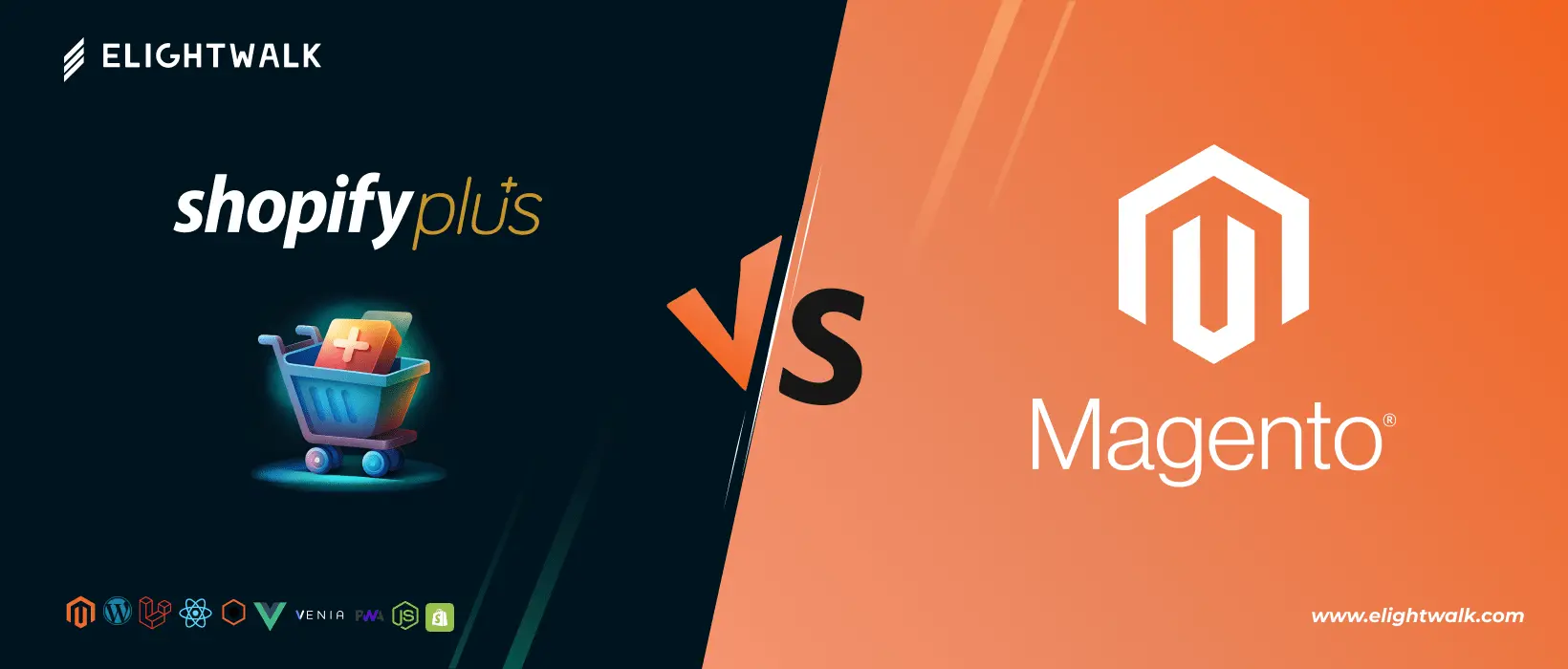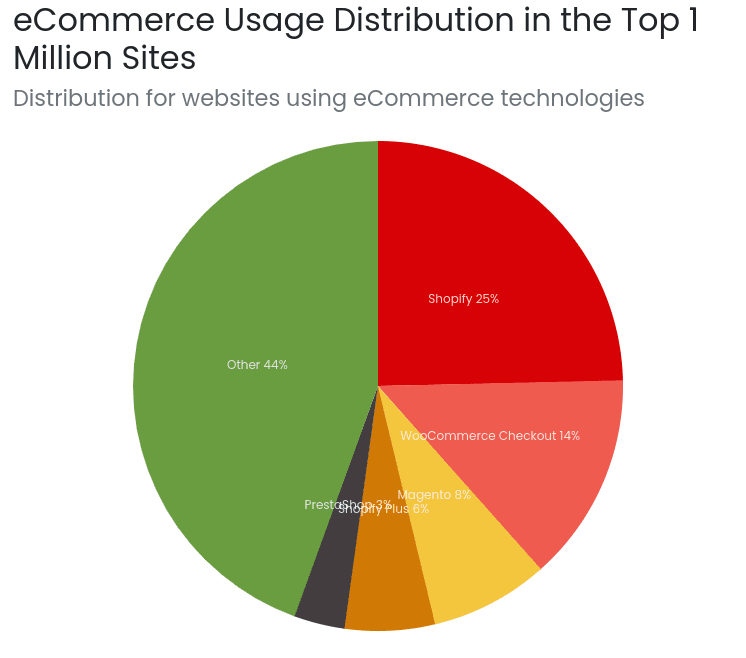When you decide to choose what is the best for your online business, you have to be clear about all the things which affect your business. It includes setup, customization, scalability and market demand and your online store development budget.
1. Ease of Use and Setup
Shopify Plus is the most convenient from the user's point of view. As a fully-hosted platform, you don't need to worry about configuring servers, approaching updates, or securing your website. A Shopify web design process goes fast. It needs no special skills. A user-friendly interface simplified by hiring a Shopify Developer, who then needs a quick deployment for your store.
Magento is a bit more involved platform for eCommerce business. You will be in control of your hosting, security, and software update activities since Magento is not a completely hosted solution. Magento is an app, based on FoxPro. You can only run it on a Windows server, either locally or via mod_perl on an SSL-enabled Apache server. This is why it is better for a company with a strong team of developers or ones it can easily hire from outsource firms. Magento has a steeper learning curve, but also it is a more flexible solution, thus it is more suitable for enterprises which have special requirements.
2. Customization and Flexibility
Magento is the go-to platform for those who are heavily into producing a unique look. You can change just about anything in the Magento open-source framework. Whether the issue is checkout, page settings, or any part of the user experience, Magento allows a business to customize its website to best match its brand. Evolution is a choice of the business owner. They may move from IFb, using PHP, to the cloud and install an SSL certificate. Shopify's app development and theme customization can further personalize your shop.
Still, there is not much difference with Shopify Plus development. On the other hand, Shopify lacks some flexibility. But, you can still make your store special with app development and theme customization. Shopify theme development specialists can aid you in personalizing the sight of your store to match your brand the best. Shopify Plus has APIs and integrations for high customization. But, they are more limited than Magento's for developers.
3. Scalability
The thing is, Shopify Plus scales in a way that leaves no or little work for the store owner. Shopify store development is a hosted solution. This lets the store handle sudden spikes in traffic, like on Black Friday or during flash sales. Also, Shopify Plus stores will take steps to ensure that the checkout remains fast and stable during the heavy traffic.
In the Magento case, it is scaling that requires more planning. As traffic picks up, you may have to upgrade your server or make your code more efficient to cope with the increased work. For large companies, Magento can give you more control. You will be responsible for its performance. But, it will be more technically complex.
4. Cost Comparison
One of the critical factors that differentiate Shopify Plus and Magento is cost.
- Shopify Plus Pricing: Shopify Plus follows a subscription-based model. The process starts at approximately $2,000 a month, but it can grow based on your shop's specific demands like custom integrations or the involvement of a Shopify development agency.
- Magento Pricing: Magento Open- Source is free, but you will need to cover hosting, development, security and maintenance. For large businesses, Magento Commerce or Magento Cloud can cost from $20,000 to $30,000 per year due to your store's size and the difficulty of your systems. Also, using a Magento development company for assistance can add these costs.
Generally, with Shopify Plus development service, pricing is simple, as with this platform the pricing model you have to work with is quite clear. Magento, on the other hand, offers more cost-effective ways depending on your needs.
5. SEO and Marketing Tools
SEO is an indispensable element if you want to succeed in e-commerce. The two e-commerce platforms Shopify Plus and Magento both provide quite a large number of SEO features, but Magento's custom SEO advantage leaves it the best.
- Magento users are allowed to optimize all the details of their website, including URL, metadata, schema markup for the best SEO practices. Magento is the platform for improving your site's organic search visibility. It will also help you find your competitor’s weakness and strengths. Enhancing Magento will boost traffic and conversion rates. Customers will find what they want among the products, as the schema language will correctly categorize them. They won't leave due to broken semantics.
- Shopify Plus is another quality option offering a powerful list of SEO tools that need the user to do virtually nothing. Meanwhile, there are a great deal of Shopify SEO apps which can be used for optimal positioning of your store. Still, if granular control over SEO is crucial to you and your Magento-based site is doing very well, then there is no need to switch to any other platform. As it can already be seen, Shopify Plus is the winner of SEO in this case.
Both platforms offer email marketing tools, social media integrations, and CRM systems, but Shopify's extensive array of Shopify apps makes it super-easy to find a ready-to-go marketing solution.
6. Security
Another thing, which is more important in online business is security. Because it is a fully-hosted solution, Shopify Plus deals with everything security related including SSL certificates, PCI compliance, and server security. If a company is building the store for you, they won't need any server admin knowledge. This will help them focus on functionality and design.
As an open-source product, Magento is responsible for security only on the retailer. Thus, one has the options of regularly installing the security patches and ensuring the hosting environment is safe. Some businesses that have sensitive data and that deal with high transaction volumes will definitely see the negative side of this.
7. Support and Community
Both Shopify Plus and Magento have strong communities and support systems. They offer many options to users.
- Shopify Plus typically offers exclusive support services such as a launch manager along with a 24/7 live assistance team. Also, if you hire a Shopify expert or have a custom theme, they could use the official Shopify resources to fix any issues.
- The Magento community is quite large and active, but support can be split unclearly. You can find a lot of forums and get other troubleshooting stuff done on your own, but the official Magento support can only be accessed with the premium version of the platform.
8. Multichannel and B2B Features
Both platforms excel in the omnichannel retail and B2B functionality areas.
- Shopify Plus enables merchants to reach customers on various platforms like social media, marketplaces like Amazon or even physical stores that use Shopify POS. As for the B2B side, it has a variety of features such as wholesale prices and bulk ordering.
- In particular, Magento Commerce comes with more built-in B2B features like customer-specific pricing, custom catalogs, and advanced shipping options. Magento's adaptability is an ideal fit for B2B companies with unique requirements.




